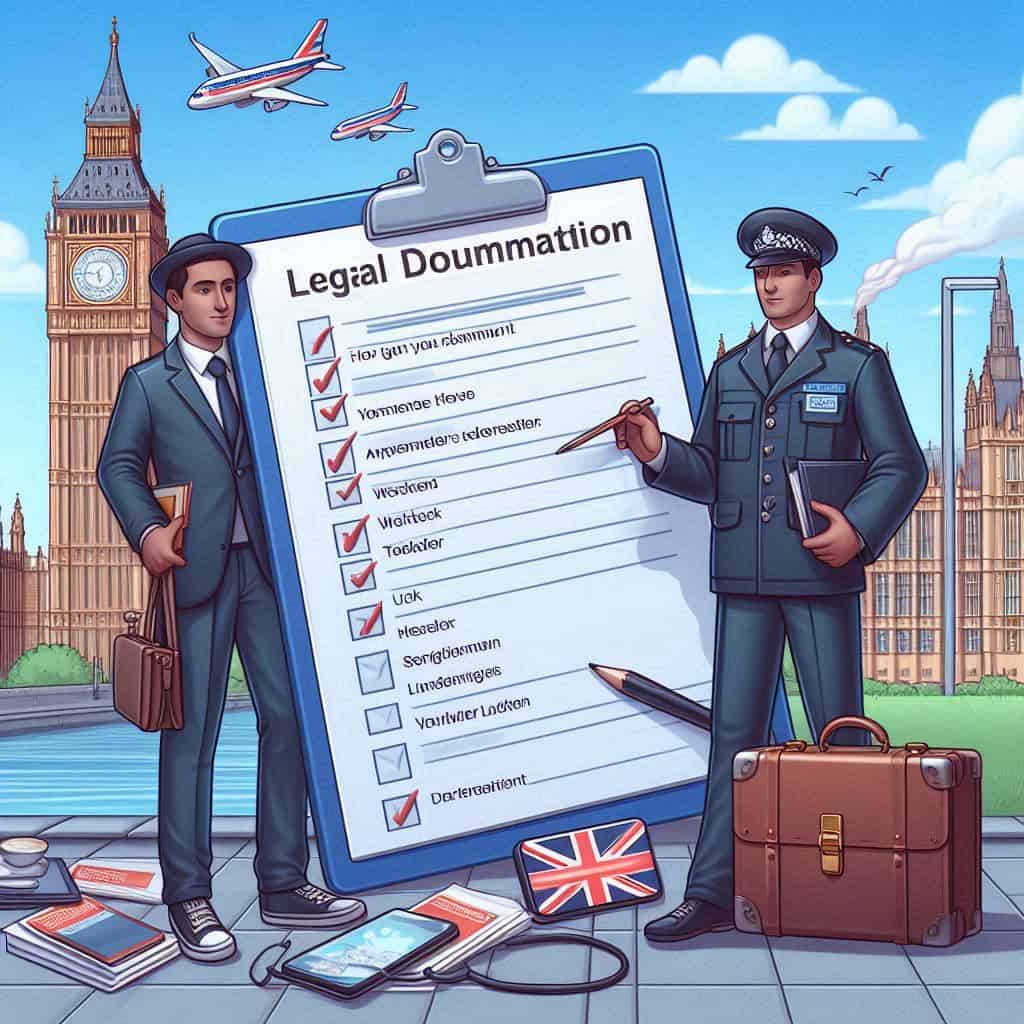It can feel very overwhelming trying to navigate the UK’s immigration system on your own, especially if you are trying to sponsor workers from overseas. If you’re an employer looking to hire talent from abroad, understanding the documents required for CoS UK is essential to your success. In this friendly guide, we will walk you through everything you need to know about Certificate of Sponsorship documentation, so you can avoid common mistakes and have a smooth application process.

What is a Certificate of Sponsorship?
A CoS (Certificate of Sponsorship) is a digital certificate with a unique reference number issued by the UK Home office to a UK employer, often with the purpose of assigning to a worker they wish to sponsor. This certificate contains information about the job role and the employee’s personal details that will be needed when applying for their visa.
There are two types of CoS. A defined CoS that is generally issued to workers that are applying from outside the UK and an undefined CoS that is reserved specifically for workers who are already in the UK and trying to switch to a Skilled Worker visa.
Before you start gathering a list of documents for application, it is important that you understand and decide on the type of CoS that will be most suitable.
Sponsor Licence Requirements: What is It & Why Do You Need One?
Before you can even issue a Certificate of Sponsorship, you need to have a valid Sponsor Licence. This requires its own set of documents as highlighted below:
- A Certificate of your business Incorporation
- Utility bills in the company’s name to show that you have a physical space in the UK
- HMRC registration evidence
- Business bank statements of account
- VAT registration document
- Documents showing the evidence of PAYE and National Insurance payments for employees
Documentation Needed for a Certificate of Sponsorship in 2025
Once you have your Sponsor Licence, you’ll need the following documents to be able to issue a Certificate of Sponsorship.
- A detailed description of employee responsibilities and duties, location of employment, working hours and salary for the role.
- Evidence showing that the employee has the required skills, qualifications, and experience required for the job role.
- Evidence showing the recruitment efforts made on the role and why you need to hire from abroad to fill the position.
- Full name of the employee as shown in their passport
- Employee Date of birth certificate
- Current contact information of the employee
- Academic certificates and qualifications
- Evidence that the worker meets the required English language standard
- Bank statement to show that they can support their stay financially.
After the application has been approved, the UK Home Office also requires you to turn in some documents showing sponsorship management;
- A copy of your employment contract with the sponsored employee
- Evidence of work schedule and attendance
- Evidence of salary payments and monthly payslips
- Quarterly or annual performance reviews
- Contact details of the employee (please update every time it changes)
- A copy of employee BRP (Biometric Residence Permit)
Common Documentation Mistakes to Avoid in Your CoS Application
Even experienced sponsors sometimes make errors with the documents required for CoS UK processes. Here are the most common mistakes you should avoid in 2025;
- Insufficient genuine vacancy evidence. The Home Office is very intentional about verifying whether roles are genuine. If your documentation doesn’t convince them that your business operations are legitimate and you have a real business need for the position, your application may be refused.
- Salary miscalculations. Make sure you provide clear documentation showing how you arrived at the salary figure and why it meets the standard requirements.
- Incomplete record-keeping. Many sponsors only focus on the initial application but neglect their compliance and sponsorship duties.Always keep detailed and updated records.
- Not documenting and reporting changes such as work location changes, salary adjustments and extended absences
Industries That Require Additional Documents For A CoS
1. Healthcare Sector
- GMC (General Medical Council) registration for doctors
- NMC (Nursing and Midwifery Council) registration for nurses
- Evidence of passing relevant language tests
- Evidence of mandatory training completion
2. Education Sector
- Proof of professional qualifications specific to teaching roles
- DBS (Disclosure and Barring Service) checks
- Evidence of teaching experience
- Research publications or other academic credentials
3. Technology Sector
- Evidence of technical skills assessment
- Project details for specialized technical roles
- Industry certifications and qualifications
Tips to Help Organize Your CoS Documentation Effectively
1. Create a Digital Filing System
You can have separate folders for each sponsored worker and use clear name tags for all documents. Secure access controls to key staff only to protect sensitive information. A digital system can easily be backed up and stored for future reference, anytime and anywhere.
2. Use a Documentation Checklist
Create a checklist that reminds you of the required documents, status of each (have you received, verified or submitted each?) and the expiration dates for time-sensitive documents such as passports.
3. Set Up Calendar Reminders
Set up reminders for visa expiration dates, CoS assignment deadlines, compliance requirements and record updates or verifications
4. Designate To Responsible Personnel
Assign clear responsibility to staff. Put them in charge of initial document collection, record maintenance, compliance monitoring and communications with the Home Office.
Building a Documentation Culture in Your Business!
As a business that consistently has a need for sponsorship of foreign skilled talents, it is important to be able to successfully compile the documents required for CoS UK process.
You should be able to build a culture of thorough documentation and compliance throughout your organization. This not only helps you access the global talent your business needs but also establishes your reputation as a reliable sponsor with UK immigration authorities.
Remember that immigration rules change frequently, so always stay informed about the latest requirements or work with immigration attorney that can monitor these changes on your behalf and ensure your documentation practices remain compliant.
With the right approach, you can transform what many see as overwhelming into a strategic advantage for your organization’s growth and success.






